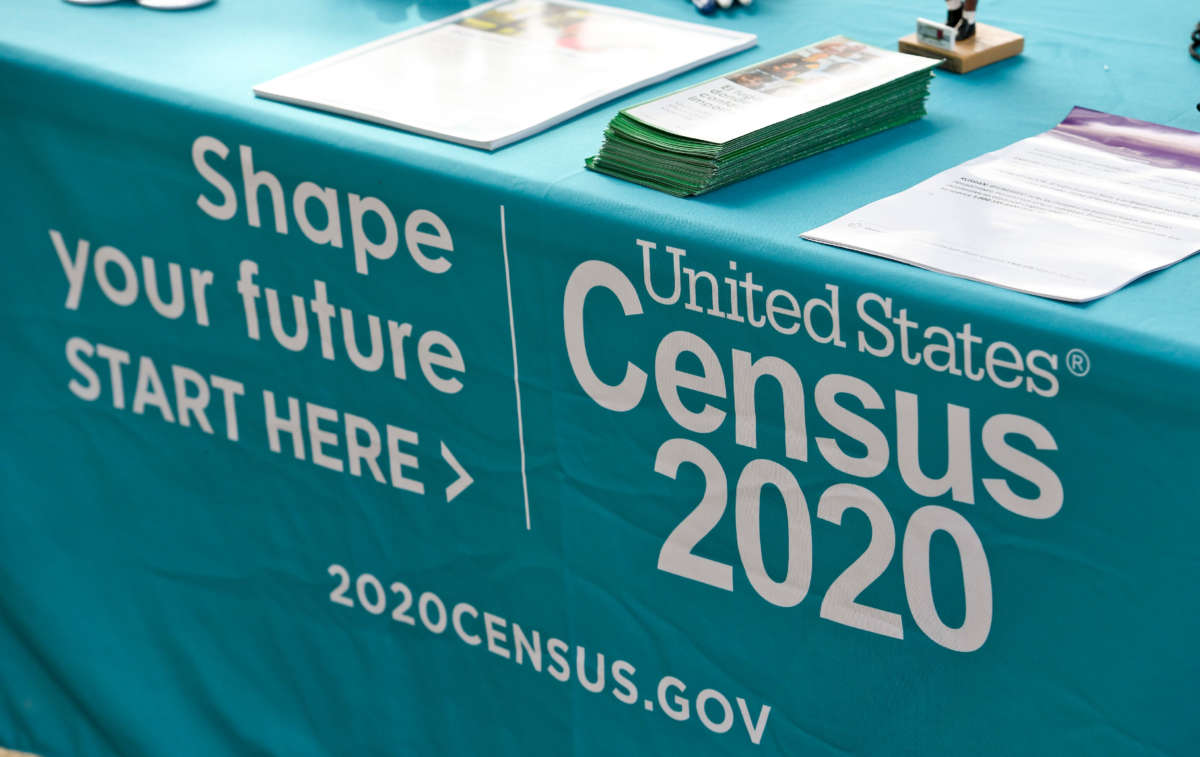The United States Census Bureau is set to announce which states saw the biggest population gains and which saw the most losses, a count that could have some influence on federal elections and the composition of Congress in the near future.
The Census Bureau produces a count of the entire U.S. population every 10 years. From these numbers, states are apportioned a number of seats in the House of Representatives, based on population sizes, with each state receiving a minimum of one House seat.
Because the number of seats in the House is fixed at 435, many states are waiting to find out if the new census numbers are going to mean a gain or loss for them in the House in the 2022 midterm elections. Although official numbers aren’t released until later next week, some projections have already been made, which demonstrate that most gains will likely be in the western part of the country with most losses showing in the Midwest and northeastern states.
In the west, Montana, Oregon, Colorado, Arizona and Texas are all projected to see gains, according to projections from the Brookings Institution, with North Carolina and Florida also slated to gain at least one seat in the southeast. Meanwhile, California, Minnesota, Illinois, Michigan, Ohio, West Virginia, Pennsylvania, New York, Rhode Island and possibly Alabama are projected to see losses.
Why are there more states projected to see losses than gains? Because two states, Florida and Texas, may actually see two or more seats added seats to their House delegation totals.
In presidential politics, although the Electoral College is based on these counts as well, these gains won’t have a huge significance. Even though many western states, which are traditionally Republican, are set to see gains (while many “blue” states are projected to lose), there appears to be a noticeable voter demographic shift happening in those areas, particularly in Sunbelt states, that actually favors Democrats, which could make up for losses in places like New York and Rhode Island.
There are deeper implications for congressional elections, however, as the reallocation of seats in the House means new maps will be drawn to take into account the increased or decreased numbers — with the potential for gerrymandering playing heavily into the Republican Party’s favor. Indeed, as an analysis from The Washington Post points out, GOP-led states have a greater than two to one advantage when it comes to how many districts they’ll be able to redraw in the coming year, compared to Democrats.
As the House is almost evenly divided right now with a slight advantage for Democrats, that could mean big gains for Republicans in 2022 — and the possibility of House Minority Leader Kevin McCarthy (R-California) becoming speaker of the House.
Many pundits have pointed out that the possibility of Democrats losing the House in 2022 was already great, as incumbent presidents typically lose on average around 32 seats in that chamber of Congress in midterm races after they get into office. On only two occasions did presidents actually see their party gain seats: in 2002 under President George W. Bush, after the attacks of September 11, 2001, and in 1934 under President Franklin Roosevelt.
That latter example may be Democrats’ best chances to formulate a blueprint to stave off losses or even keep the House in their hands. The changes that happened under Roosevelt after he and the Democrats passed several New Deal reforms represented a huge political realignment that carried into the 1934 midterm race, resulting in gains for Democrats.
The question is, however, whether Biden will prove to be as transformative a leader as Franklin Roosevelt was seen to be — or what political scientist Stephen Skowronek calls a “reconstructive” president. Some believe that Biden is indeed such a personality, including Rep. Ro Khanna (D-California), who thinks that the current president has the potential to move the U.S. out of a political era that Skowronek and others believe began under President Ronald Reagan.
“Biden has a huge opportunity to finally get our nation past the Reagan narrative that has still lingered,” Khanna said earlier this year.
If Biden embraces this narrative, and decides to “go big” on a number of policies over the next two years, it has the potential to result in an outcome where Democrats may not lose seats in the House in the next election cycle, regardless of the reapportionment that is expected to take place.
Join us in defending the truth before it’s too late
The future of independent journalism is uncertain, and the consequences of losing it are too grave to ignore. To ensure Truthout remains safe, strong, and free, we need to raise $47,000 in the next 8 days. Every dollar raised goes directly toward the costs of producing news you can trust.
Please give what you can — because by supporting us with a tax-deductible donation, you’re not just preserving a source of news, you’re helping to safeguard what’s left of our democracy.
